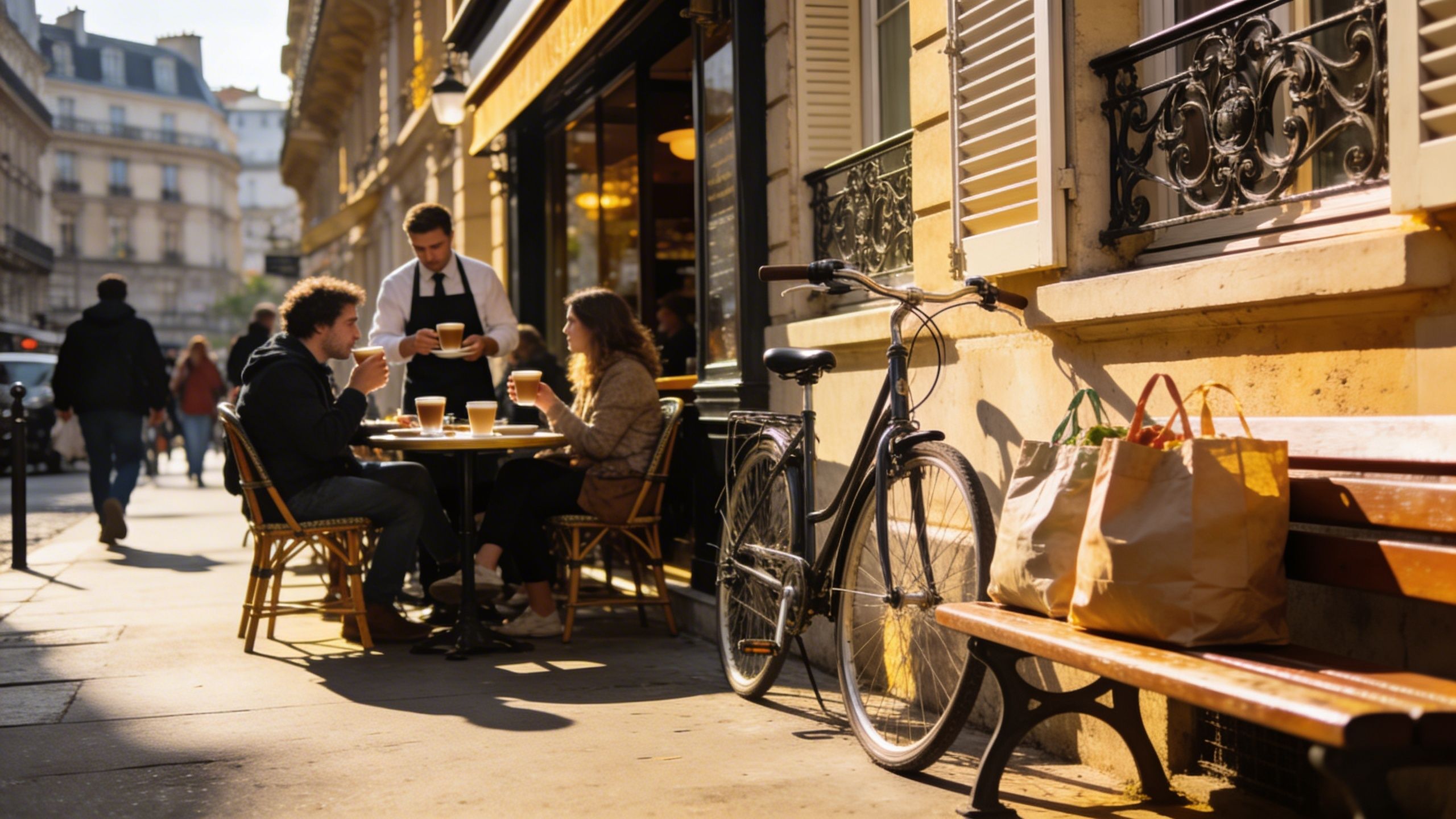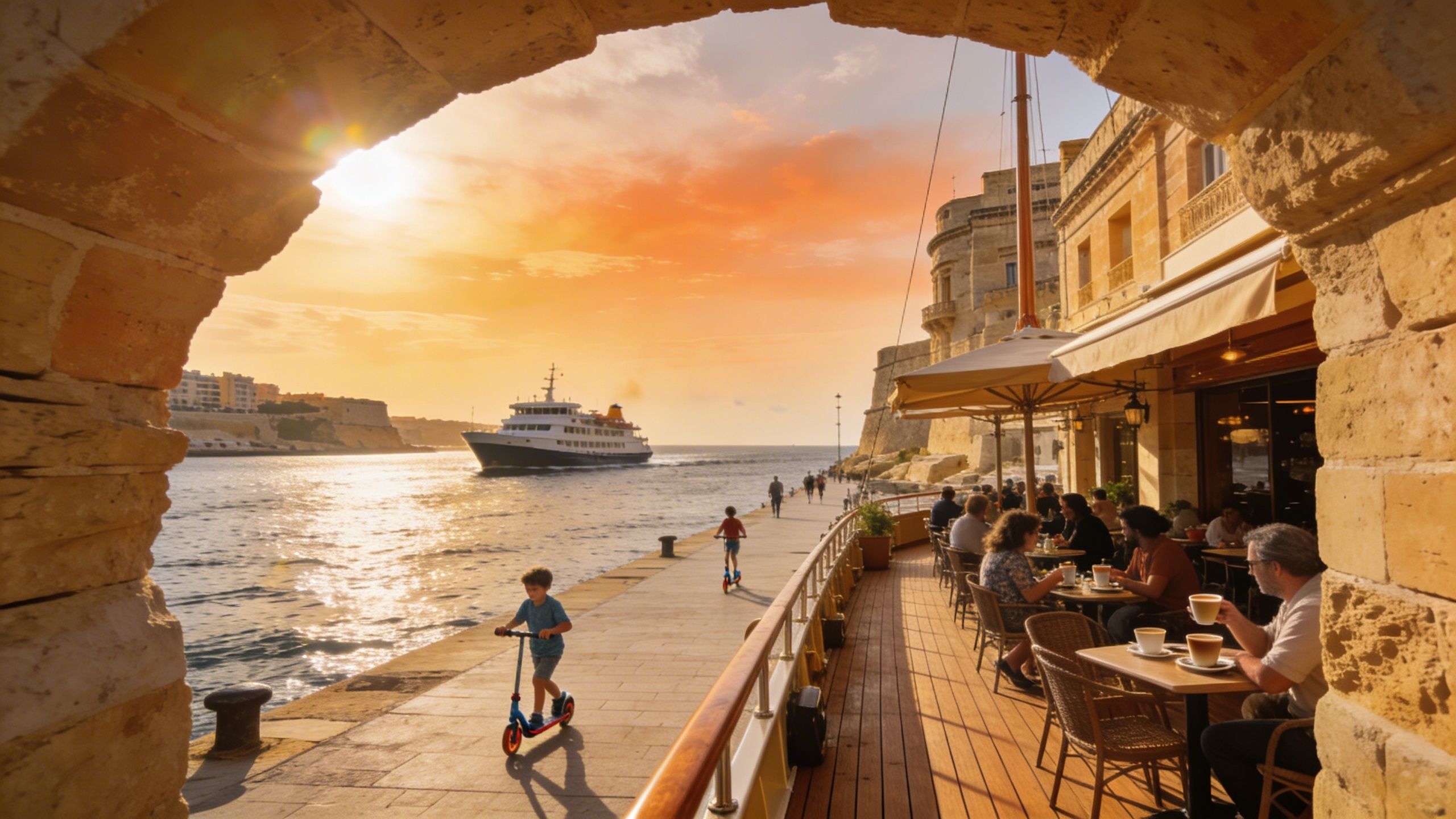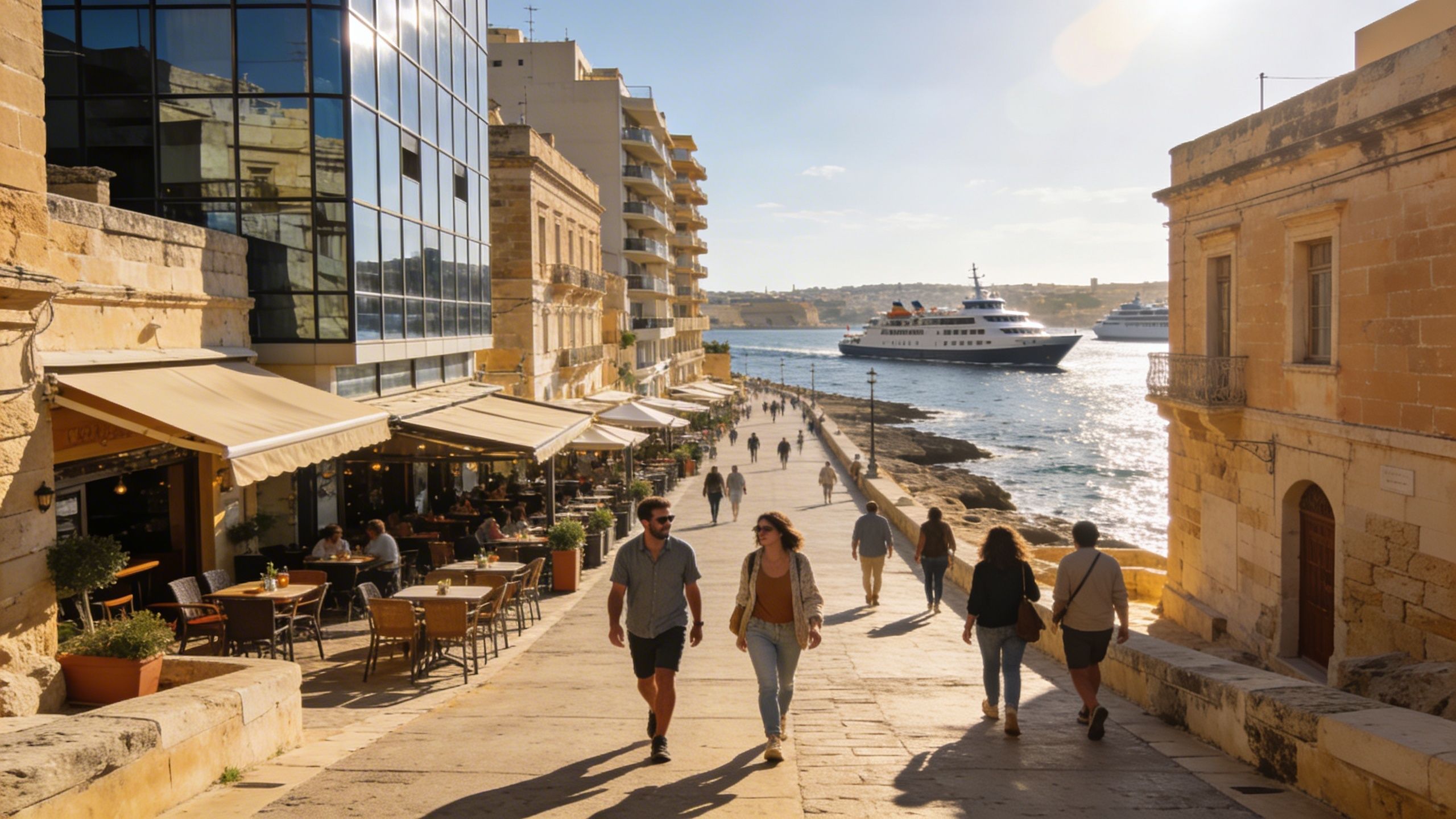Croatia’s Life, Tax Changes and What They Cost You
Croatia offers irresistible coastal life but 2025’s tax and residency changes make careful, season-aware due diligence essential for international buyers.
Imagine waking before dawn to the salt-and-coffee air of Split’s Riva, buying figs from a grocer on Ulica Domovinskog rata, then signing paperwork for a stone house in Varoš. Croatia lives in small rituals—espresso at 8 a.m., afternoon siesta on shaded terraces, family dinners that start late and run long. For many international buyers the romance is immediate; the legal and tax reality that follows is not. This guide leans into that contrast: why the life sells itself, and which regulatory facts will quietly change your return calculations.
Living Croatia: daily rhythms and neighbourhood character
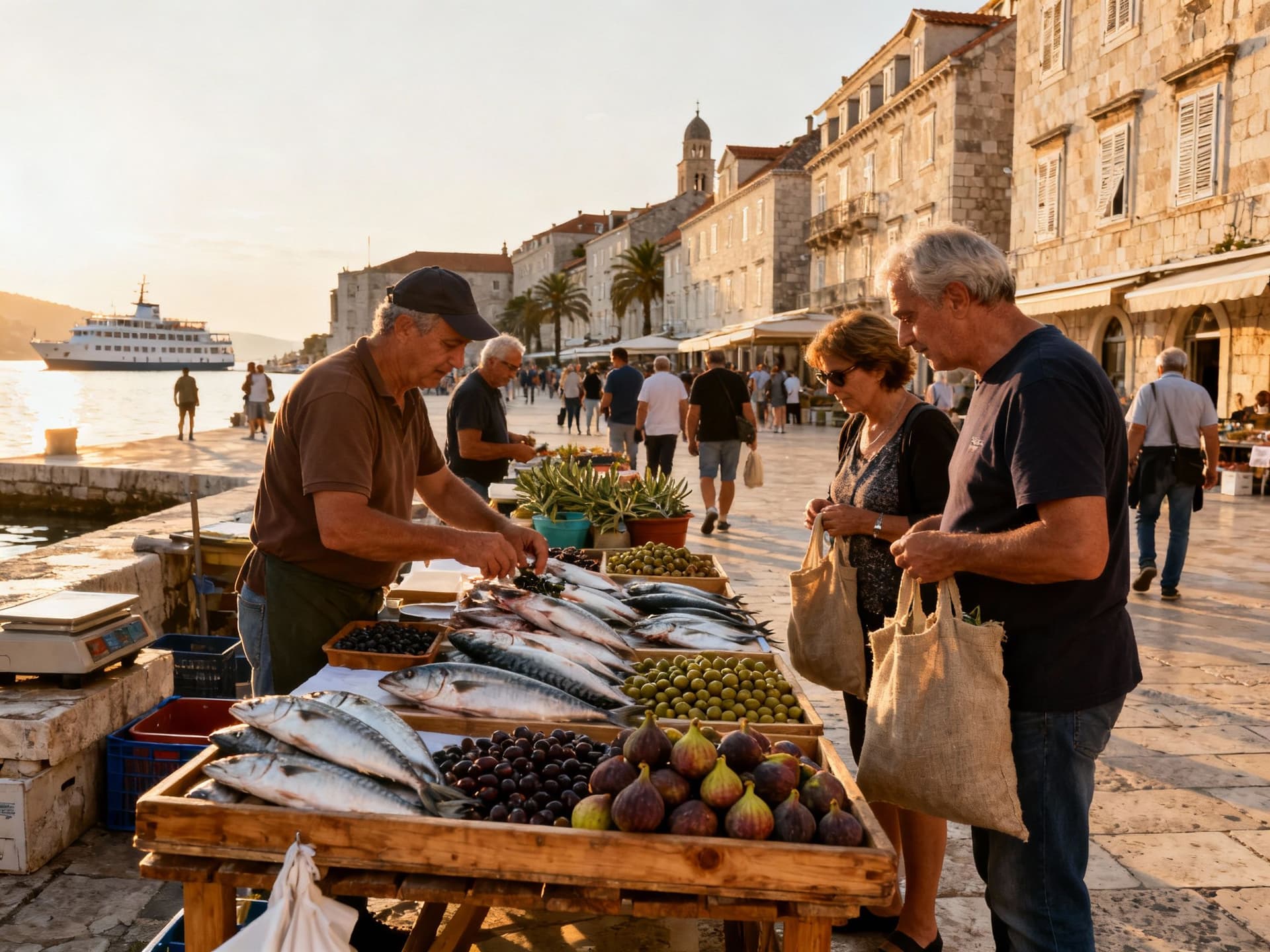
Croatia’s character shifts quickly from hinterland to coast. Zagreb’s Donji Grad hums with weekday coffee culture and tram noises; coastal towns like Rovinj and Hvar trade morning markets and late-night konobas. Locals pace life around seasons: summer opens the seafront and festivals, autumn is for chestnuts and truffle fairs, winter folds the islands into quiet. If you want life that changes with the calendar, Croatia rewards attention to details—street names, market days, ferry timetables—more than grand panoramas.
Spotlight: Split — Varoš, Bačvice and the slow coast
Walk Varoš at dusk and you’ll find narrow lanes, stone stairways and neighbours who still hang laundry between balconies. Bačvice beach is twenty minutes away and packed with locals for afternoon football. For buyers this means small apartments in old stone fabric with high lifestyle value but specific limits: narrow access for construction, protected heritage regulations in some zones, and seasonally-swinging rental demand.
Food, markets and micro‑moments that define day-to-day life
From Dolac market stalls in Zagreb to fish auctions on the Dalmatian quay, eating in Croatia is local and calendar-driven. For buyers that matters: a kitchen worth using, a nearby market, and storage for seasonal produce add daily value that doesn’t show in price-per-square-metre comparisons. We recommend visiting neighbourhood markets (e.g., Pazar in Split, Dolac in Zagreb) during a working week to understand true accessibility and noise.
- Lifestyle highlights: cafés, beaches and hidden streets
- Buy morning coffee on Zagreb’s Vlaška; wander Rovinj’s Marmontova into old harbour; catch sunset at Hvar’s Fortica; shop fish at Zadar’s Market; explore Korčula’s bishop’s street for quiet stone houses.
Making the move: practical considerations that shape the lifestyle
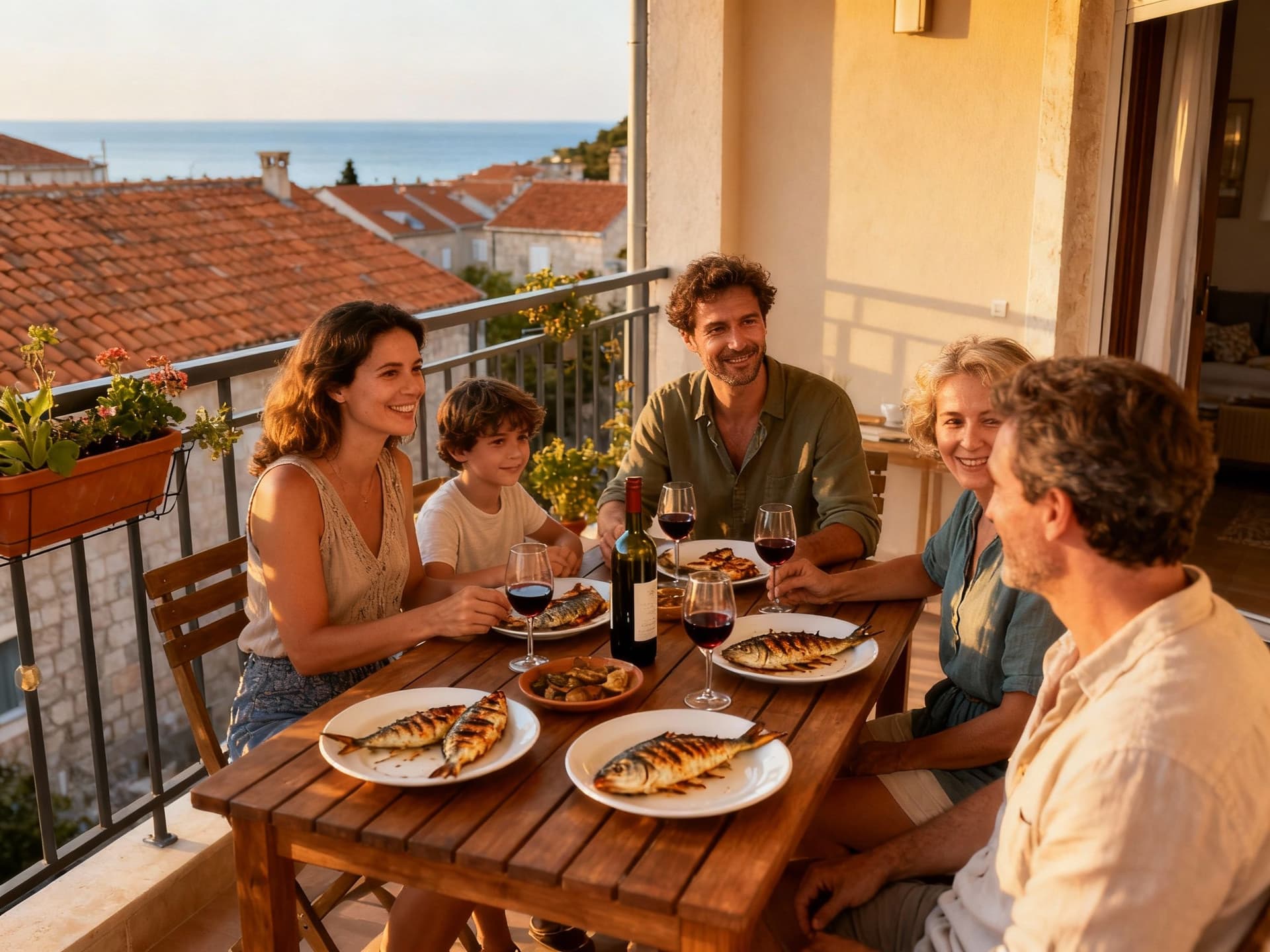
Owning a stone house in Istria is one thing; living in it year-round is another. Croatia does not grant automatic residency for property purchase. For non‑EU buyers, Ministry approval may be required and property ownership alone rarely confers permanent residence. Practically speaking, expect to combine property ownership with other legal bases—work, business investment, or one‑year temporary permits—if you want sustained presence.
Property types and how they fit daily life
Stone town houses deliver charm and centrality but often require renovation and face heritage rules. New builds provide efficient systems and terraces for indoor‑outdoor living, yet they sit outside historic cores and trade immediacy for convenience. If you want a café on your corner, prioritise older neighbourhoods; if you want year‑round insulation and parking, prioritise newer developments.
Tax change you must budget for: from 1 January 2025 Croatia introduced a broader annual property tax aimed at reducing vacancy and encouraging long‑term rentals. Municipal rates vary (reported range €0.60–€8.00/m²). Coastal holiday homes are often in higher bands, which directly affects the holding cost for second‑home owners reliant on seasonal short lets.
- Practical checklist before you sign: 1) Verify whether you need Ministry of Justice approval for non‑EU buyers. 2) Get an OIB (Croatian tax ID) and a local lawyer to check title and land use. 3) Model property tax at the municipal rate for example towns. 4) Distinguish VAT on new builds (25%) vs. 3% transfer tax on resales. 5) Confirm short‑term rental rules for the municipality.
Insider knowledge: what expats wish they’d known earlier
Expats tell a consistent story: the Adriatic sizzles in summer and slumbers in winter. Plan for seasonality—utilities, maintenance, and rental income can swing dramatically. Recent market data show strong price growth along the coast through 2024–2025; that reduces immediate upside for short‑term flipping and raises the premium of buying for life.
Cultural integration, language and community
Small courtesies matter: greeting shopkeepers by name, joining a local klapa concert, or learning basic Croatian phrases will open doors. Municipal administrations often operate with local rhythms—appointments, paperwork windows and notaries are scheduled in ordinary business hours. For residents, building trust with neighbours is a practical safeguard when you’re away for months at a time.
Long-term lifestyle considerations and exit planning
Think five years forward: renovations accumulate, municipal rules evolve, and tax regimes can change quickly (as 2025 showed). If rental income is part of your plan, predict regulatory friction around short‑term letting and model conservative yields after municipal taxes and seasonal vacancy. Keep an exit route: clear title, up‑to‑date registry entries, and paperwork translated and notarised.
- Smart‑buyer habits to adopt now: hire a bilingual lawyer; visit in different seasons; demand itemised operating-cost forecasts; confirm municipal zoning for intended uses; and test local management options for rental and maintenance.
Conclusion: Croatia rewards patience. The sensory pleasures—market mornings, seaside dinners, village festivals—are real and readily available. But the regulatory and fiscal environment now attaches an explicit holding cost to second‑home ownership, and residency requires separate legal steps. Visit in different seasons, cost the municipal property tax for your target town, and work with a local advisor who can translate lifestyle aims into a compliant acquisition plan.
Dutch relocation advisor who moved to Marbella in 2016. Guides Dutch buyers through visa paths, relocation logistics, and balance of lifestyle with value.
